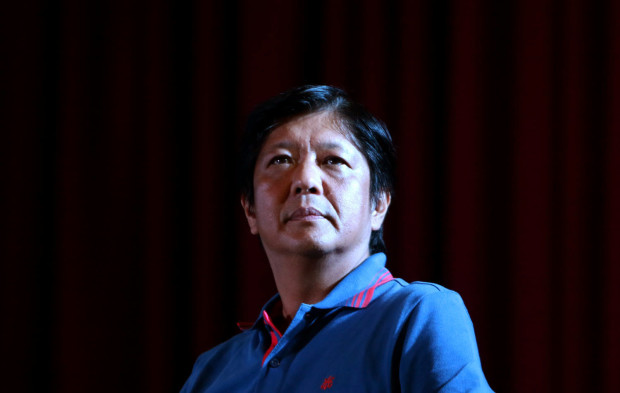
Vice Presidential candidate and Senator Bongbong Marcos during the Radyo Inquirer Issues Forum in Tarlac State University gymnasium in Tarlac City. INQUIRER PHOTO / RICHARD A. REYES
Vice Presidential candidate Sen. Ferdinand Marcos Jr. yesterday called for a massive job creation program through more “business-driven” infrastructure within the first 100 days of the next administration.
In a statement, Marcos cited a forecast by analysts from TradingEconomics.com, which showed that the unemployment rate in the Philippines could remain at around 6 percent until 2020 unless the government undertakes a drastic shift in economic and labor strategies.
He said there are some 1.2 million graduates who will be joining the workforce this year, which makes job creation a priority of the next administration.
“The government must be able to generate enough jobs for our graduates and those still looking for work. It should be massive job creation and the only way to do that is to make our economy grow through infrastructure projects,” the vice presidential candidate said, adding that the infrastructure projects would encourage the expansion of businesses, which would open up opportunities for employment.
“By infrastructure, I mean not only roads and bridges but also schools, power generation plants, water system and our Internet service, which is the second slowest in Asia,” Marcos said.
He pointed out that most businesses are currently transacted through the Internet, which the government should now consider vital infrastructure to trade and commerce.
According to a 2015 report of international Internet speed testing company Ookla, the Philippines is 176th out of 202 countries in terms of Internet speed. In Asia, the Philippines ranked second, next to Afghanistan, with the slowest Internet download speed.
Ookla found that our average Internet speed is at 3.64 megabit per second, way below the global average of 23.3 Mbps.
Singapore has the world’s fastest Internet speed, with 122.43 Mbps followed by Hong Kong, which has 102 Mbps.
Marcos said that while the government provides a conducive environment for business, it must also provide sufficient protection for workers, particularly through the strict enforcement of labor laws.
“These are the things that the next administration must immediately address in the first 100 days in office. I am confident this can be done. And if I am elected Vice President, I will propose these kinds of programs and explain how this can be done,” Marcos said.